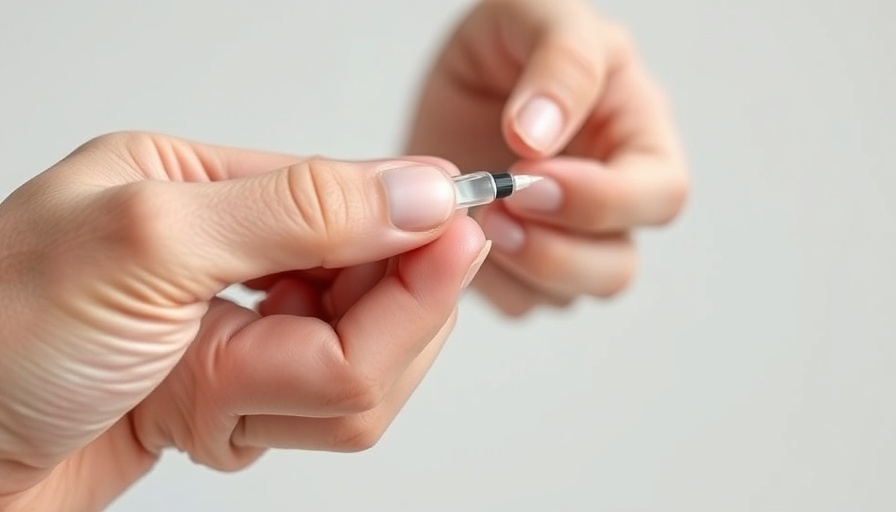
Understanding Insulin Therapy: A Lifesaving Breakthrough for Diabetes Management
Since its discovery in 1921, insulin therapy has drastically changed the landscape of diabetes treatment, ensuring millions can control their blood glucose levels effectively. Whether managing type 1 or type 2 diabetes, understanding how insulin functions, and its multifaceted applications can empower patients to live healthier lives. This article will delve into the types of insulin, methods of administration, benefits and challenges faced by users, and the exciting advancements in the field.
The Different Types of Insulin: Tailoring Treatment to Individual Needs
Insulin is not a one-size-fits-all solution. Its four primary types differ in onset, peak activity, and duration:
- Rapid-acting insulin: Begins acting within 15 minutes, peaks at around one hour, and lasts for 2 to 4 hours.
- Short-acting insulin: Takes 30 minutes to start working, peaks in 2-3 hours, and continues to work for 3 to 6 hours.
- Intermediate-acting insulin: Enters the bloodstream within 1 to 3 hours, peaks in 4 to 12 hours, and can last up to 18 hours.
- Long-acting insulin: Starts working after 1 to 2 hours, has no specific peak, and lasts about 24 hours.
By understanding these differences, patients can collaborate more effectively with their healthcare professionals to design a treatment plan tailored to their lifestyle and blood sugar needs.
Applying Insulin Therapy: Administration Methods Explained
For many, the method of insulin administration is a critical consideration. Some of the most common methods include:
- Injections: The most prevalent method, using either syringes or insulin pens.
- Insulin Pumps: These devices provide continuous insulin infusion, allowing for seamless insulin administration throughout the day.
- Inhalation: This novel approach, involving inhaled insulin, provides a needle-free option for users.
Choosing the right method can significantly impact daily management and overall quality of life for those with diabetes.
Benefits of Insulin Therapy: A Path to Better Health
The advantages of insulin therapy extend beyond simply regulating blood glucose levels:
- Improved Blood Glucose Control: Effectively prevents episodes of hyperglycemia and hypoglycemia, promoting stability.
- Complication Prevention: Well-managed blood sugar can notably decrease the risks of neuropathy, retinopathy, and nephropathy associated with diabetes.
- Quality of Life: Regular insulin therapy can significantly elevate overall well-being, offering patients a sense of control and stability.
However, one must also consider the potential challenges alongside these benefits.
Navigating Challenges in Insulin Therapy: What to Watch For
While insulin therapy is a powerful tool, users may face challenges. One primary concern is hypoglycemia, where blood sugar levels drop dangerously low due to timing or dosage errors. Additionally, some experience weight gain, complicating their overall health goals. Injection site reactions, including irritation or skin changes, can also arise from frequent insulin use.
Innovations in Insulin Therapy: The Future is Bright
As technology advances, insulin therapy continues to improve. Key innovations include:
- Insulin Analogues: Engineered insulin formulations that provide better-suited results for individuals, offering flexibility and enhanced post-meal glucose control.
- Smart Delivery Systems: Combining insulin pumps with continuous glucose monitoring (CGM) technologies leads to optimal insulin delivery based on real-time glucose readings.
- Artificial Pancreas Systems: These automated systems mimic the normal pancreatic functions, providing seamless control and reducing the burden on users.
Future advancements promise to enhance diabetes management significantly, simplifying daily routines and increasing patient autonomy.
How Lifestyle Choices Impact Diabetes Management
Alongside insulin therapy, lifestyle interventions such as diet and exercise play a vital role in managing diabetes. For instance, following a Keto diet or implementing intermittent fasting can improve insulin sensitivity and blood sugar regulation. Patients should collaborate with healthcare providers to tailor these strategies, integrating them smoothly into their diabetes management plan.
Inspiring Transformation: Personal Stories of Management
Many individuals living with diabetes share inspiring stories of how insulin therapy has changed their lives. For example, a man named Tom discussed how switching to an insulin pump gave him the freedom to eat out without prior planning and managed his blood sugar effectively. These real-life anecdotes highlight the journey and persistence required to manage diabetes effectively.
Your Path Forward: Take Control of Your Health Today
In conclusion, insulin therapy is a crucial component of diabetes management, empowering patients to take control of their blood glucose levels and live fulfilling lives. With ongoing advancements and the integration of lifestyle changes, patients can combat the challenges of diabetes head-on. Encourage yourself to explore new methods of management and connect with healthcare professionals to optimize your approach. Remember, your health is a journey, and every step you take matters.
 Add Row
Add Row  Add
Add 



 Add Row
Add Row  Add
Add 


Write A Comment